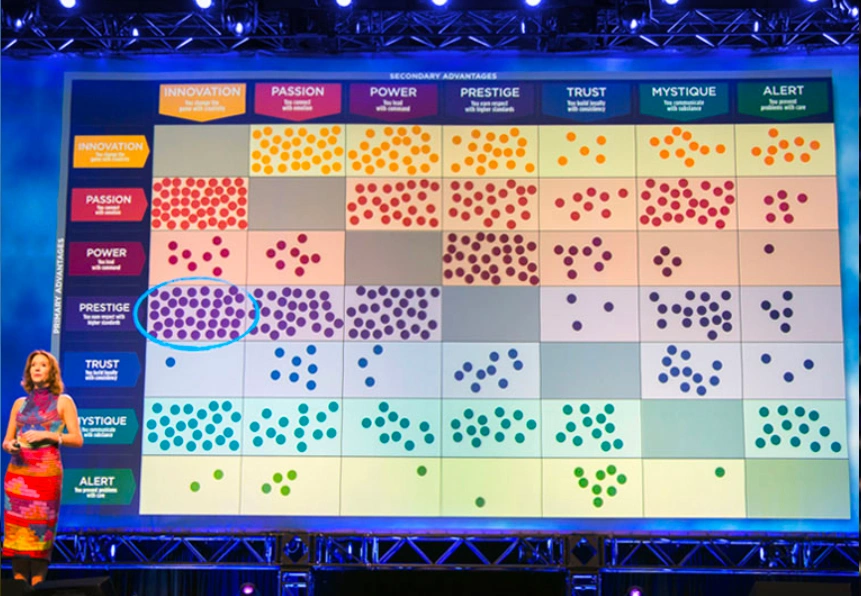sally’s research
proprietary
is better than
better
Watch Sally Hogshead explain her proprietary research into the science of fascination.
a decade of studies
1 million+ participants
2 new york times bestsellers
published in 22 languages
the foundation
the science of fascination
How much are people willing to pay for fascinating products?
In what ways do people differ in their levels of fascination: men versus women, CEOs versus college students, New Yorkers versus people in the Midwest? What exactly determines if a message is fascinating?
To find the answers, we studied the ways in which fascination can be a shortcut to persuasion and give you a greater ROI (Return on Investment) by making a brand or your personality more fascinating.


the methodology
searching for answers
We measured large groups within companies to find out how the employees of a company can positively (or negatively) drive a company’s overall brand. We compared competing companies in the same industry, to see how they differed in their communication patterns.
We spent time with teams and leaders inside companies such as Twitter, AT&T, and Wells Fargo.
In many cases, the results make perfect sense. But in certain ways, the results were pretty startling.
 Innovation
Innovation
 Power
Power
 Trust
Trust
 Alert
Alertlowest on the Alert Advantage.
fascination is a neurological state of intense focus

When you fascinate someone, they are more likely to listen to you, remember you, and take action on what you say.
Sally spent the first half of her career creating ad campaigns that fascinated millions of consumers. At age 24 she was the # 1 most award-winning copywriter in the U.S., creating ideas that helped brands become more profitable, valuable, and loved.
Brands don’t win by focusing on what makes them BETTER than the competition, but rather, what makes them DIFFERENT.